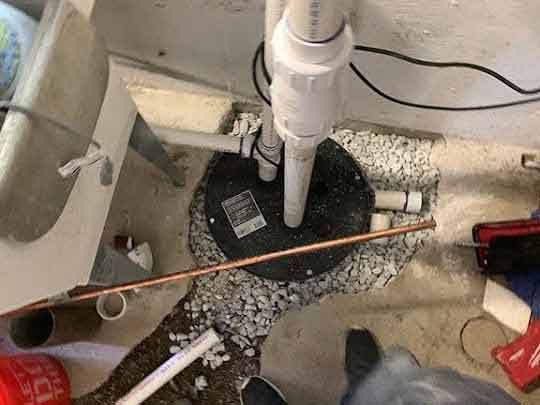As a rule, sump pumps don’t get a lot of attention. They are part of the forgotten components of your home’s plumbing system. We only pay any attention to sump pumps when they stop working. In other words, most homeowners will wait until they have a flood in the basement before they realize their sump pump is no longer functioning.
That defeats the whole purpose of having a sump pump in your basement. Sump pumps are installed in the home for the unique reason that you do not want to wake up to a flooded basement. But as T-Square Properties warns, that is what you will get if the sump pump fails without your knowledge. To avoid this situation, always keep the sump pump ready.
Even if a sump pump has kept your home dry in the past, it is no reason to believe it will continue to do so into the future. Sump pumps may fail without warning. At times, you may have to replace a functional sump pump. That becomes necessary when the pump begins to show signs of failure, and you are afraid it might fail at the worst possible time.
How long do sump pumps last?
Sump pumps last between 7 and 10 years, depending on several factors. Some of the things that influence the performance and lifespan of a sump pump include; the frequency of usage, how long it works during each cycle, and the volume of water it displaces. Sumps pumps that see a lot of use will naturally wear out faster than those you use infrequently.
However, this is not the only factor that determines the lifespan of your sump pump. The quality of care the sump pump receives is a tremendous factor in its longevity. A sump pump that sees heavy use will outlast one you use less often if the heavily used one gets more attention than the other one. How do you know your sump pump is malfunctioning, and it is time to replace your sump pump?
There are five things you should look at to make this decision. If more than one of these problems applies to your sump pump, it is time to replace it. Even if you can fix a problematic sump pump, the cost of those repairs will often be enough to get you a new sump pump. Moreover, a sump pump you recently fixed may still fail you when you need it most.
Five signs it is time to replace your sump pump.
The sump pump is old
Although you would like your sump pump to last a decade, the truth is it might not. More sump pump failures are due to aging than from any other cause. That is because if a sump pump has worked well in the past, homeowners tend to expect it to keep working in the future. As a result, they do not pay enough attention to the sump pump until they deal with costly flood damage in their basement.
The sump pump runs constantly
Sump pumps automatically power up when the sump pit fills with water and goes off after discharging the water. You have a serious problem if your sump pump comes on but doesn’t go off. A sump pump that is running without water will overheat very fast. Sump pumps may act this way if there is a fault with the float switch, check valve, or the pump is too small for the basin.
The sump pump is clogged
Sump pumps handle a certain amount of debris in the water that flows through them. But a sump pump can be overwhelmed if there is too much sediment in the water. If this happens, the sump pump’s impeller fan blades can jam. The pump inlet and discharge line may also get clogged. Iron ochre in water will also clog the sump pump. All these interfere with the performance of your sump pump and damage it.
The sump pump works erratically
If a sump pump works for too long and then in short sporadic bursts, you have a problem. A constant eruption of activity from your sump pump means water isn’t making it to the discharge line. The pump is simply cycling the same water over and over again. A sump pump will do this if the float valve has failed, there is loose wiring, or the pump doesn’t have enough horsepower to do its job.
The sump pump is noisy
A certain amount of noise is usual when your sump pump is working. But if the sump pump roars when it works, makes rattling noises, or you can hear the sound of metal against metal and gurgling noises from the equipment, you have a problem. Excessive noise from a sump pump could be due to a damaged impeller, malfunctioning backflow valves, or improper installation.
